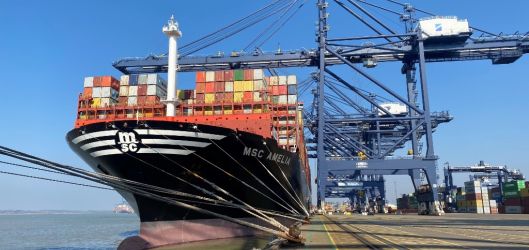
Last night (14 November 2018) the cabinet agreed a draft agreement for the UK to leave the European Union. This morning, amid the resignation of Brexit Secretary Dominic Raab, there’s clearly some more political maneuvering and tumult still to come. However, should the cabinet-agreed plan last – and get past a vote by Parliament in December – then the impact of Brexit is becoming slightly clearer to UK importers.
Trade in goods was among the most challenging areas to agree on and the official statement warned that the agreement reached so far “will require further work during the negotiations”.
A free trade area has been agreed, in principle, with deep regulatory and customs cooperation, building on the single customs territory.
Here’s the official wording in the summary document:
“On trade in goods, the negotiators have agreed in principle the need for comprehensive arrangements creating a free trade area, combining deep regulatory and customs cooperation, building on the single customs territory provided for in the Withdrawal Agreement. Both sides wish to make the trading relationship as close as possible. Exactly what balance of rights and obligations will be compatible with the integrity of the Union’s Single Market and Customs Union and the development of the United Kingdom’s independent trade policy will be the subject of the future relationship negotiations.”
While the cabinet has reached the agreement, after many months of negotiation, there is no guarantee that it will get over the next hurdles – including further review by UK and EU lawyers, after which the government will lay a final version of the agreement before Parliament.
Importers – and UK manufacturers – will already have noted that the pound has dropped significantly, particularly after Raab’s resignation.
Speaking from a automotive supplier viewpoint, Mike Hawes, SMMT Chief Executive, said: “For the automotive industry, Brexit is about damage limitation. The outline agreement is a positive step in avoiding the devastating consequences of ‘no-deal’ and securing a transition period. It is, however, only a first step and business seeks certainty and ambition when it comes to securing a competitive future. Truly frictionless trade is the only way to ensure the industry’s future success, and this should be the objective for all parties as we move into negotiating the permanent UK-EU relationship.”


